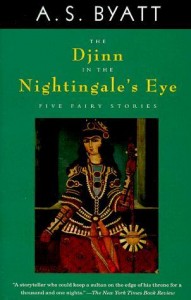A writing professor once advised me to keep writing fresh and to examine the words you use—tears don’t ever really roll down someone’s face. But how can you reexamine every word or phrase you use and still have time to write? Sometimes it helps to look at things from a new perspective and this week Haruki Murakami helped me do just that with The Wind-Up Bird Chronicle.
When I read “network of red lines” as a description of the narrator’s bloodshot eyes, my writing spidey-sense perked up. “Bloodshot” is an easy word. Too easy. You can say “spider web” but that stands out against nearly any paragraph. I loved “network of red lines.” It was concise and vivid and I could picture it and it also didn’t have to interrupt the flow. Except I wanted it to because it made me think about freshening my own descriptions.
A note on translation here: I don’t read Japanese, so I will never know exactly what words Murakami uses, and I am taking for granted that his translator has not run away with the story. Also, “network of red lines” could be the way bloodshot eyes are standardly described in Japanese. Regardless, it was new to me and I loved it.
I read Murakami chiefly for fun, though he is a wonderful and imaginative writer. I am grateful to him for reminding me that language is infinite and even one fresh examination can spawn wonder. I’m off to see if I can spawn some fresh imagery in my own writing. Just as soon as I finish this fantastic book.
If this review made you want to read the book, pick up a copy of The Wind-Up Bird Chronicle from Bookshop.org. Your purchase keeps indie booksellers in business and I receive a commission.
 The world is conspiring to make me a feminist and I’m realizing how sadly overdue that evolution is. I had to become a writer before I could love myself as a woman, and I had to do both before I could become a feminist. This week Dorothy Allison taught me about all of these identities.
The world is conspiring to make me a feminist and I’m realizing how sadly overdue that evolution is. I had to become a writer before I could love myself as a woman, and I had to do both before I could become a feminist. This week Dorothy Allison taught me about all of these identities. Lately I’ve been drawn to fairytales and myths. Perhaps I am trying to recover an ebbing capacity for storytelling in my suddenly busy life, and perhaps I’m looking to get lost in the wonder of stories the way I did when I was a kid. Perhaps I’m missing afternoons at Louisa’s with Bob and Jack and their emphasis on the mythic journey. When I stumbled on AS Byatt’s The Djinn in the Nightingale’s Eye, I thought I wanted to read it because it spoke to the Arabian Nights, but what I fell in love with was the overall fairytale quality of the book and its five stories and what they told me about being a woman.
Lately I’ve been drawn to fairytales and myths. Perhaps I am trying to recover an ebbing capacity for storytelling in my suddenly busy life, and perhaps I’m looking to get lost in the wonder of stories the way I did when I was a kid. Perhaps I’m missing afternoons at Louisa’s with Bob and Jack and their emphasis on the mythic journey. When I stumbled on AS Byatt’s The Djinn in the Nightingale’s Eye, I thought I wanted to read it because it spoke to the Arabian Nights, but what I fell in love with was the overall fairytale quality of the book and its five stories and what they told me about being a woman.